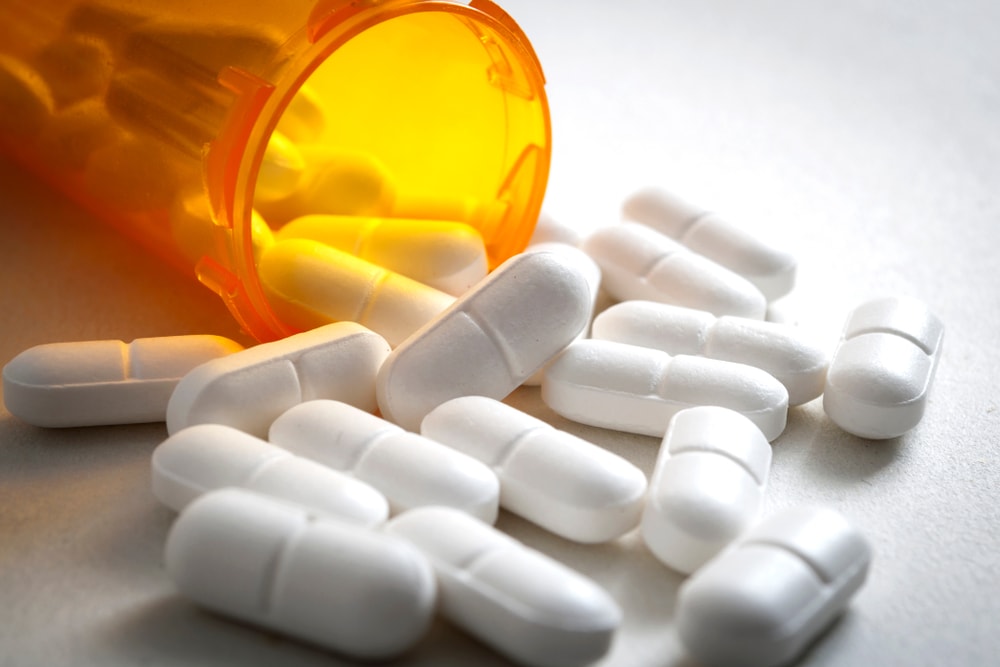Vicodin, an opioid painkiller containing hydrocodone and acetaminophen, comes from the opium poppy plant. The drug works by binding with opioid receptors in the brain to stop painful sensations.
Doctors usually prescribe the drug following surgeries or to treat pain arising from cancer and arthritis.
Effects of Consumption
Consumption of Vicodin results in a range of short-term and long-term effects. Short-term effects include: drowsiness, cloudy thinking, fear, mental and physical dependence, constipation and an inability to urinate.
Long-term abuse results in drug addiction. The acetaminophen component of the drug can additionally cause liver damage over time. Addiction is characterized by a noticeable change in the person’s demeanor. They have become a total stranger to their loved ones whose only concern is getting more pills to keep withdrawals at bay.
Withdrawals from opioid drugs are intense. The user experiences muscle and bone pain, anxiety, aches, cramps, restlessness, chills, vomiting, diarrhea and nausea.
Symptoms of Overdose
Signs of opioid prescription overdose include unconsciousness, pinpoint pupils, depressed breathing or even a complete stop in breathing. Depressed breathing causes a lack of oxygen in the brain.
As a result, the vital organ systems shut down followed by brain damage and possibly death. Call 911 to seek emergency medical help immediately if someone has overdosed. For people who are already addicted, seeking rehabilitation can help prevent overdosing in the future.

Seeking Treatment for Addiction
The initial step to breaking Vicodin addiction is actively deciding to change and ultimately stop the destructive habit. It is best to find a qualified drug rehab facility to increase the chances of successful recovery.
Specialized treatment centers help ease the withdrawal symptoms recovering addicts face and provide tools to prevent relapsing in the future. Recovery usually follows a two-step process.
Steps of Recovery
The initial step in drug rehab recovery is a medically supervised detox in which the drug is gradually removed from the individual’s system. A doctor may give Suboxone to help make withdrawals easier. Buprenorphine and Naloxone is another possible cocktail that will be used to assist in the detox process.
Following the detoxification process, individuals undergo intensive therapy. Therapy gets to the root of the issues that caused addiction. Addiction specialists then provide alternatives to deal with those issues.
If the addiction severed or damaged any ties with friends or loved ones, addiction specialists help repair those relationships. Furthermore, the specialists provide cognitive and behavioral therapy to help deal with life stressors and avoid relapsing.
Treatment centers realize that addiction to prescription drugs occasionally develops after taking the drug for valid reasons. In these cases, they work with the individual’s physician to find healthy pain-management strategies.
Opioid abuse therapies are highly effective. Anyone suffering from opioid prescription drug addiction who wants help should seek help from in-and-out patient programs to break the cycle.
Types of Treatment
Individuals can seek help in the form of an inpatient facility or outpatient program. Inpatient treatments occur in a residential setting. People live there for a few weeks or a few months and partake in therapy, activities, 12-step meetings and aftercare programming.
The 12-step program helps members stay sober by working with a sponsor and trusting in a higher power.
Outpatient treatment allows people to attend a recovery system several times a week if they must work or prefer a nonresidential treatment method.
Aftercare
Aftercare following addiction recovery treatment focuses on home, sense of purpose, health and community engagement. There are three primary aftercare methods individuals choose after returning to daily life.
Some people choose to continue participation in 12-step programs for life to keep a system of support during their recovery.
Another option is sober living, which is a residential setting. Sober living facilities provide rules, supervision, curfews and chores to maintain newfound sobriety.
Outpatient counseling involves speaking with a counselor regularly to assess and continue one’s personal growth and development.
Benefits of Sobriety
Sobriety rewards recovering addicts in a few ways. For one, they will notice they have more money for their needs and wants. They no longer resort to crimes in search of a high. Plus, their relationships with their loved ones improve. The benefits of getting help far outweigh the benefits, or shall we say detriments, of continued use.

